World
Global Pride events to renew demands for equality
Kyiv Pride to take place in Liverpool
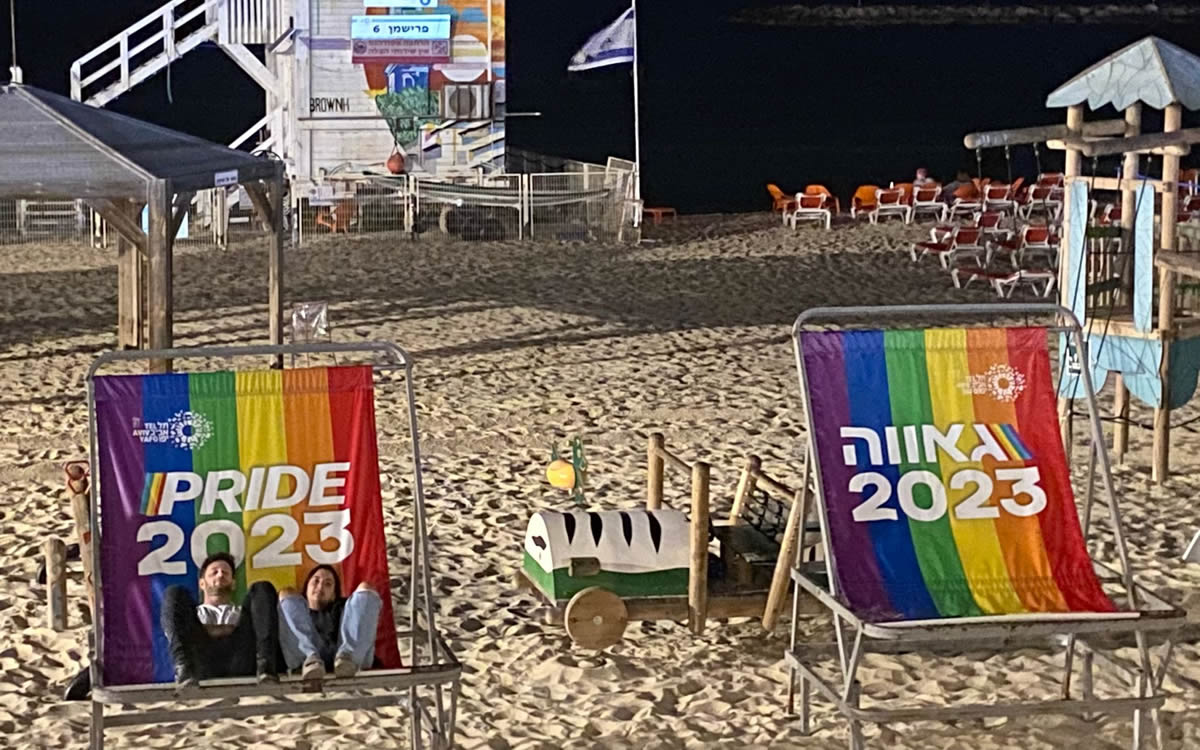
Activists around the world are using Pride events to renew their demands for full equality.
This year’s Pride month coincides with the debate over marriage equality in Aruba.
The Joint Court of Justice of Aruba, Curaçao, Sint Maarten and of Bonaire, Sint Eustatius and Saba that has jurisdiction over three constituent countries (Aruba, Curaçao and Sint Maarten) and three special municipalities (Bonaire, Sint Eustatius and Saba) within the Netherlands late last year ruled Aruba and Curaçao must extend marriage rights to same-sex couples.
Gay Aruban Sen. Miguel Mansur on Wednesday told the Washington Blade that he and activists on the island are “pushing to have” the marriage equality debate this month, but opponents in the Aruban Parliament have been trying to delay. Mansur further stressed this year’s Pride month events are an important way to counter those who oppose marriage equality and other LGBTQ rights.
“It’s especially important for representation because of the same-sex marriage law there was an onslaught of attacks by certain religious groups, an association of churches,” said Mansur. “Representation and visibility are more important than ever.”
Upwards of 30,000 people participated in the Jerusalem Pride and Tolerance Parade on June 2. Former Israeli Prime Minister Yair Lapid, who now leads the country’s opposition, is among those who sharply criticized members of the current government over their opposition to LGBTQ rights.
“Outside are standing, like every year, the wretched thugs of Lahava movement, demonstrating against us,” said Lapid. “Only this year these people are no longer just a ridiculous bunch of dark extremists — they are part of the government. Bezalel Smotrich, (Internal Security Minister) Itamar Ben-Gvir [and] Avi Maoz, are trying to push us all back into the closet, to the dark closet of their foreknowledge.
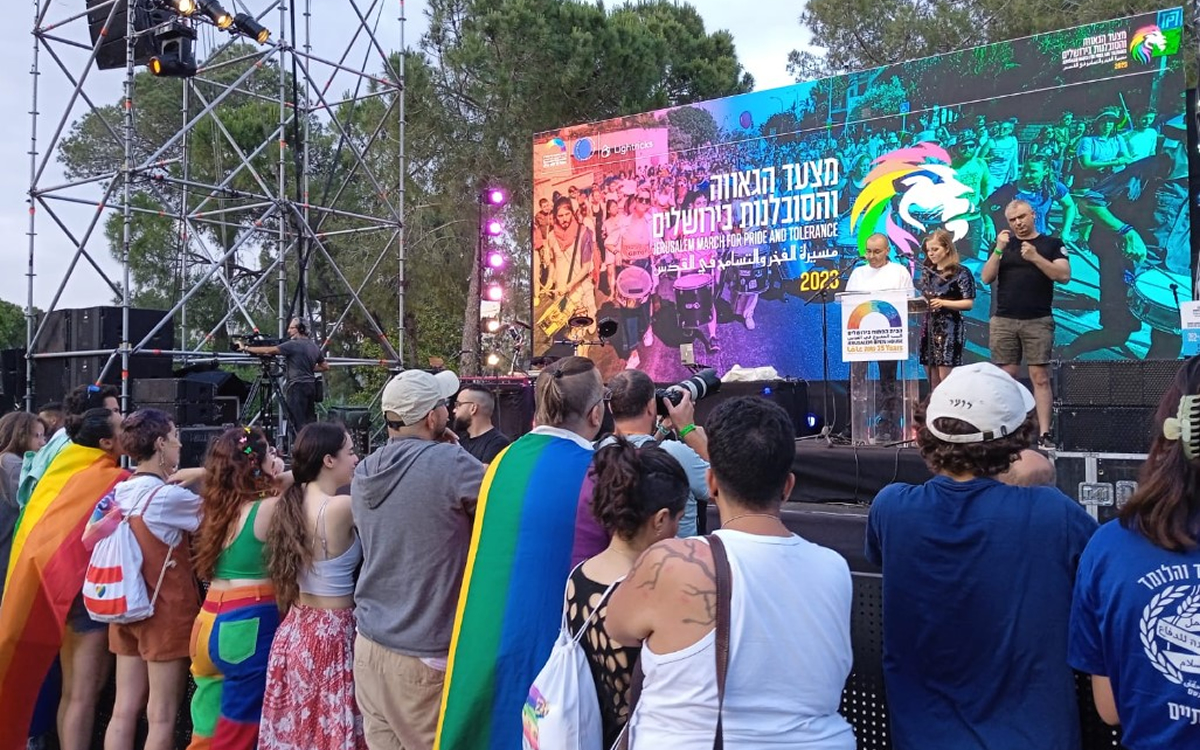
Thai MP Pita Limjaroenrat, who is the frontrunner to become the country’s next prime minister, is among those who participated in Bangkok’s Pride parade that took place on June 4. Limjaroenrat told reporters that his government will support marriage equality and a transgender rights law once it forms.
“Love is love and love must win,” said Limjaroenrat in a Facebook post.
Hundreds of people on June 4 participated in a Pride march in the Sri Lankan capital of Colombo.
Rosanna Flamer-Caldera, executive director of Equal Ground, a Sri Lankan advocacy group, on Wednesday noted to the Blade that her organization will hold a queer film festival and other events throughout Pride month. Activists in Jaffna, a city in northern Sri Lanka, are also planning to hold a Pride march.
These events will take place roughly four months after the Sri Lankan government announced it supports a bill that would decriminalize consensual same-sex sexual relations in the country.
“We are really proud of the work that we have done around bringing Pride to Sri Lanka,” said Flamer-Caldera. “It was an alien concept 19 years ago when we first started. We have started a movement in Sri Lanka around Pride.”

São Paulo’s annual Pride parade, which is among the world’s biggest, will take place on the city’s Paulista Avenue on June 11.
São Paulo LGBT+ Parade Vice President Renato Viterbo notes participants and organizers seek to “draw the attention of government officials to what public policies should be for all citizens, regardless of their sexual orientation.” The Movement for Homosexual Integration and Liberation, the Chilean advocacy that organizes the annual Pride parade in Santiago, the country’s capital, says it plans to use the June 24 event as a way to demand President Gabriel Boric’s government to strengthen the country’s anti-discrimination law and to create what it describes as “an anti-discrimination institutionality.”
Ugandan President Yoweri Museveni on May 29 signed his country’s Anti-Homosexuality Act with a death penalty provision for “aggravated homosexuality.” This year’s Pride events are also taking place against the backdrop of the war in Ukraine.
Anna Sharyhina, co-founder of the Sphere Women’s Association, a group that promotes LGBTQ and intersex rights in Ukraine, last September led a Pride march in a subway station in Kharkiv, the country’s second-largest city that is less than 30 miles from the Russian border in eastern Ukraine.
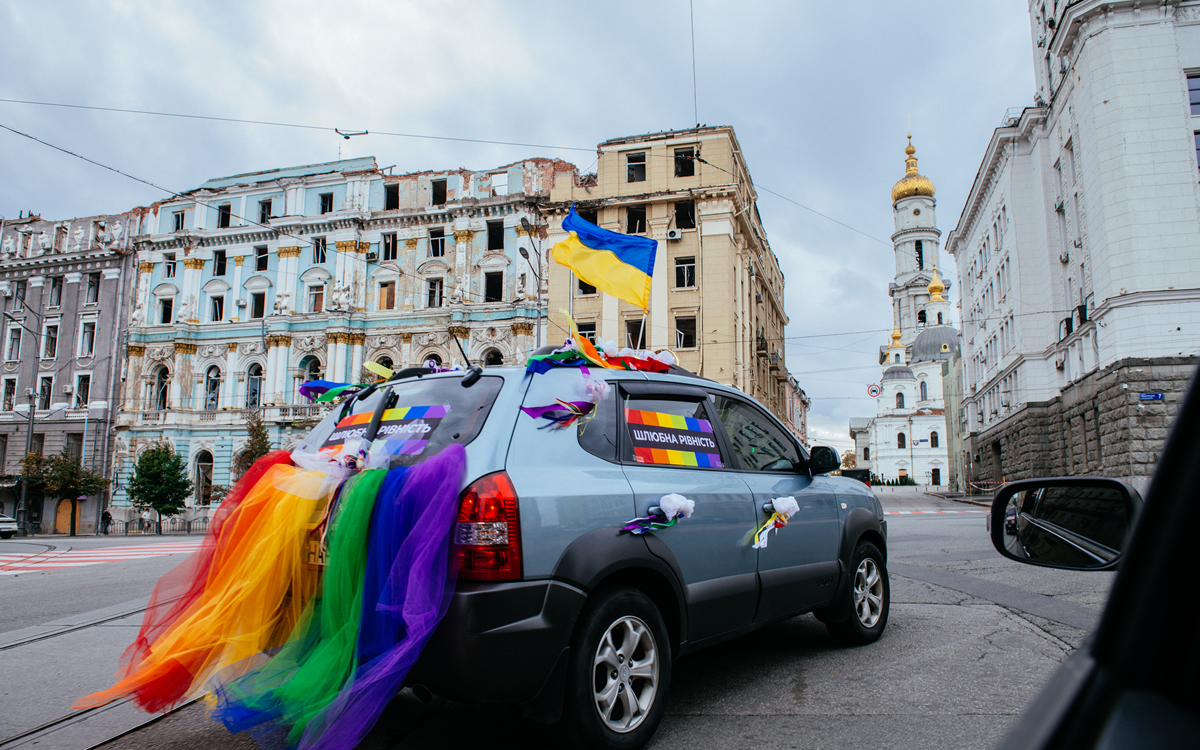
The Liverpool City Region Pride Foundation and Kyiv Pride on July 29 will hold a joint Pride event in the English city of Liverpool.
“Liverpool and Ukraine remain united by love,” tweeted Pride in Liverpool on June 1. “This year Liverpool will showcase Kyiv and Ukraine’s LGBT+ spirit as our annual March with Pride is held jointly with Kyiv Pride.”
Liverpool and Ukraine remain united by love 💙💛
‼ Some BIG NEWS today and we’re going to Shout It Loud ‼ This year Liverpool will showcase Kyiv and Ukraine’s LGBT+ spirit as our annual March with Pride is held jointly with @KyivPride. 🇺🇦 🏳️🌈 🏳️⚧️❤️ pic.twitter.com/YbEVuTKKVy
— Pride In Liverpool (@PrideInLpool) June 1, 2023
The Baltic Pride March will take place in the Estonian capital of Tallinn on June 10. Reykjavík Pride will take place in the Icelandic capital from Aug. 8-13.
The importance of Reykjavík Pride is tremendous, and has always been tremendous, for both the queer community and the society around us. This is where we come together, fight for acceptance and celebrate our successes,” Reykjavík Pride Managing Director Inga Auðbjörg K. Straumland told the Blade. “However, the backlash is hitting us, like it’s hitting our siblings across the globe. We feel that the rights of our community are sliding backwards and we acknowledge that the fight is far from over.”
“This year it’s therefore very important that we come together, ready to continue to fight for our rights; especially for the rights of those that are most marginalized within our community,” added Straumland. “We do that by uniting. By talking, dancing, shouting, demanding, singing and painting the whole city in rainbow colors; showing the rest of the world that we’re going nowhere.”
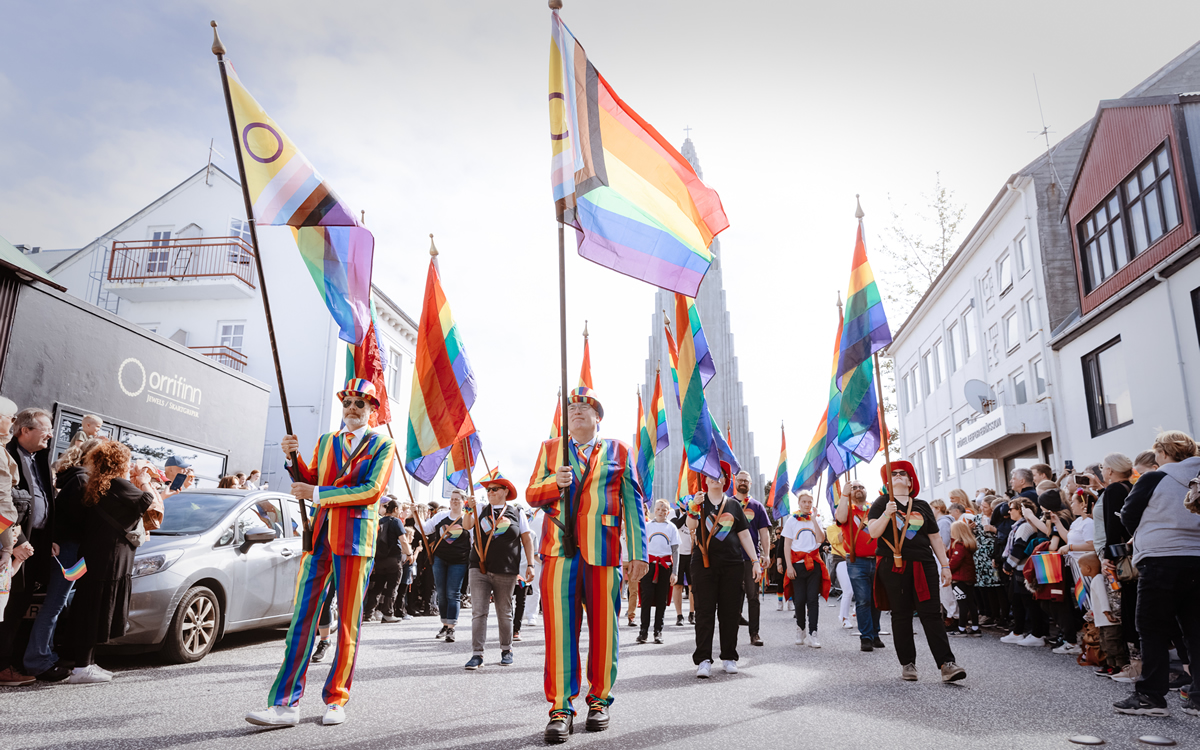
Brody Levesque and WDG, the Blade’s media partner in Israel, contributed to this story.
Chile
Transgender woman sues Chilean national police
Isabella Panes alleges she suffered harassment, exclusion after becoming ‘carabinera’

Isabella Panes in 2022 was celebrated as a symbol of inclusion.
Wearing an olive green uniform and a shy smile, she appeared in the media and on social media as Chile’s first trans female “carabinera” or national police officer. The Carabineros promoted Panes as a sign of openness, but that story has become a dramatic case of institutional discrimination.
Panes today faces the Carabineros in court.
She has denounced a series of systematic acts of exclusion, harassment at work, and violation of fundamental rights that she and her defense team maintains pushed her into a mental health crisis that almost cost her her life.
“My hope is that tomorrow we will be able to live in a world of equality for all. Just that we understand that we are human beings and we have to make life a lot easier for each other,” Panes told the Washington Blade during an exclusive interview.
Panes, 29, grew up in Laja in the Biobío region.
She dreamed of becoming a “carabinera” since she was a child, despite the fact that she faced discrimination because of her gender identity. After years of effort, surgeries and a difficult transition, Panes enrolled in the Carabineros Academy in 2021.
Panes faced the challenge of making her medical processes compatible with the physical demands of training. Even so, she graduated with good marks, and was recognized as part of the new institutional image the Carabineros wanted to project after the 2021 social unrest tarnished their image.
This institutional support disappeared after the media campaign.
Panes alleges she was marginalized from operational duties and relegated to administrative tasks, despite her interest in and training to patrol the streets like any other officers.
“I joined the Carabineros to serve, not to be a marketing decoration,” she said. “I was offered to be part of the change, but only if I kept quiet and accepted the mistreatment.”
The accusations against the Carabineros are serious: Constant mockery by colleagues, dissemination of private information about her personal life, invasive questions about her body and sexual orientation. Panes’s legal representatives said this abuse took place within a context where the institution did not take effective measures to protect their client.
The Carabineros Social Security Administration, known by the Spanish acronym Dipreca, also refused to cover her transition-related medical procedures, arguing they were “aesthetic,” despite medical reports that indicated their importance for Panes’s mental health and well-being.
Panes in January attempted to kill herself by suicide. She managed to survive after calling Chile’s 4141 mental health care number for help.
“They were killing me slowly, from the inside,” said Panes.
Panes has brought her case to the Supreme Court after a lower court ruled in favor of Dipreca’s decision to not cover her medical treatments.
Her legal team in a lawsuit has also accused the Carabineros of employment and systematic discrimination. Panes is seeking damages and institutional reforms.
“The Carabineros used Isabella to clean up its public image, but when it came to guaranteeing real rights, they abandoned her,” said Javiera Zúñiga, spokesperson for the Movement for Homosexual Integration and Liberation, a Chilean advocacy group.
“It is not enough to show up at the Pride march,” she added. “True inclusion is demonstrated in deeds, in daily dealings, in respect for the dignity of all people.”
Panes’s case starkly exposes the limits of diversity policies when there is no deep institutional commitment to implement them.
“I am no longer afraid,” said Panes, ”What happened to me cannot happen again. Not for me, but for all those who come after me.”
Brazil
US lists transgender Brazilian congresswoman’s gender as ‘male’ on visa
Erika Hilton has represented São Paulo since 2022

A transgender Brazilian congresswoman says the U.S. issued her a visa that listed her gender as “male.”
Erika Hilton on Wednesday wrote on her Instagram page that she requested a visa that would have allowed her to travel to the U.S. in order to participate in the Brazil Conference at Harvard University and the Massachusetts Institute of Technology.
The conference took place earlier this month.
“I was classified as ‘male’ by the U.S. government when I went to get my visa,” wrote Hilton, who added a visa she received from the U.S. in 2023 listed her gender as “female.”
Hilton is a Black travesti and former sex worker from São Paulo who won a seat in the Brazilian Congress in 2022. The Washington Blade spoke with Hilton shortly after her election.
“It is a big responsibility … but I feel very honored,” said Hilton. “I very much like to be able to be a representative for my people, and the more than 250,000 people who voted for me have confidence in me,” she said after she spoke at a rally in support of now Brazilian President Luiz Inácio Lula da Silva in a São Paulo square. “This demonstrates that our work has the potential to have a gigantic reach; where we can advance efforts to end death, poverty, misery, genocide that we have.”
President Donald Trump in his inaugural speech announced the federal government’s “official policy” is “there are only two genders, male and female.” The Trump-Vance administration has also banned the State Department from issuing passports with “X” gender markers.
Germany and Denmark are among the countries that have issued travel advisories for trans and nonbinary people who plan to visit the U.S. These warnings come ahead of WorldPride, which is scheduled to take place in D.C. from May 17-June 8.
Hilton said she is “not surprised” the U.S. issued her a visa with a male gender marker.
“I’m also not surprised by the level of hatred and fixation these people have with trans people,” she said. “After all, the documents I presented are rectified, and I’m registered as a woman, even on my birth certificate.”
Hilton further accused the U.S. of “ignoring official documents from other sovereign nations, even from a diplomatic representative.”
“At the end of the day, I’m a Brazilian citizen, and my rights are guaranteed and my existence is respected by our own constitution, legislation, and jurisprudence,” she said.
Editor’s note: Duda Salabert, another transgender Brazilian congresswoman, also said the U.S. listed her gender as “male” on her American visa.
United Kingdom
UK Supreme Court rules legal definition of woman limited to ‘biological women’
Advocacy groups say decision is serious setback for transgender rights
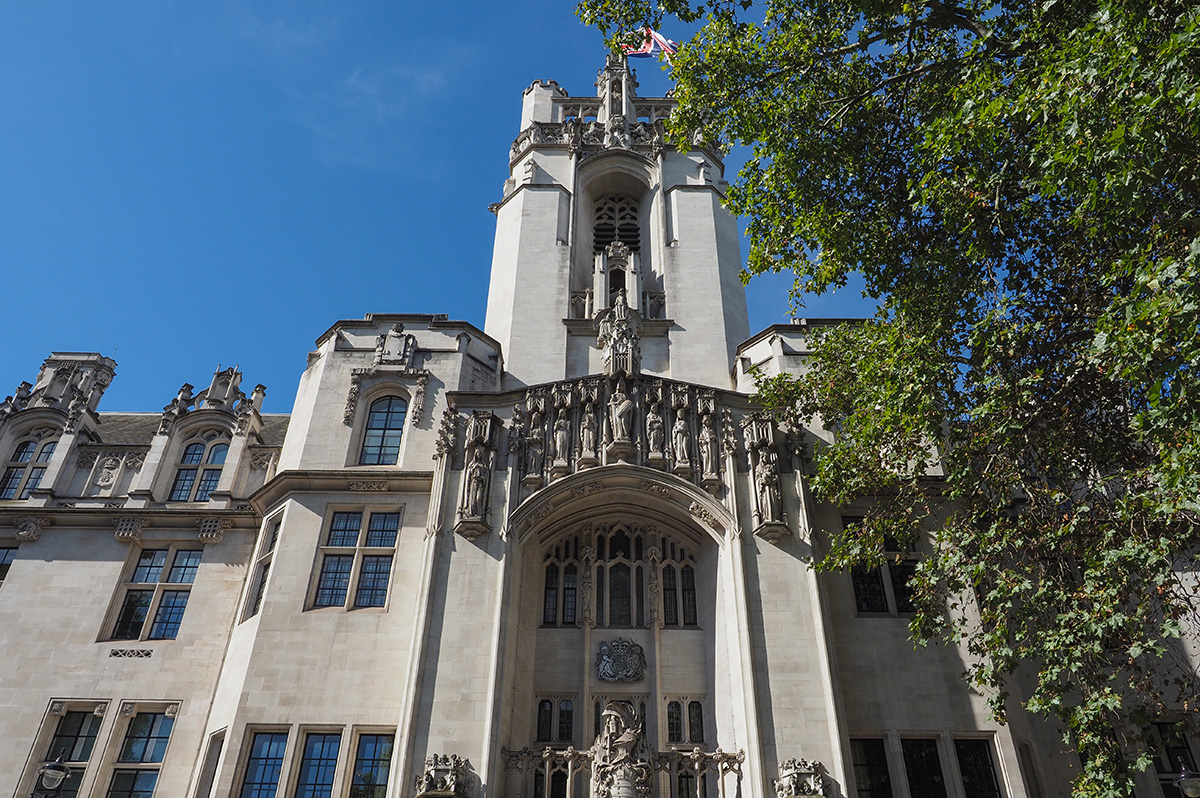
The British Supreme Court on Wednesday ruled the legal definition of a woman is limited to “biological women” and does not include transgender women.
The Equality Act that bans discrimination based on sexual orientation and gender identity took effect in 2010.
Scottish MPs in 2018 passed a bill that sought to increase the number of women on government boards. The Supreme Court ruling notes For Women Scotland — a “feminist voluntary organization which campaigns to strengthen women’s rights and children’s rights in Scotland” — challenged the Scottish government’s decision to include trans women with a Gender Recognition Certificate in its definition of women when it implemented the quota.
Stonewall U.K., a British advocacy group, notes a Gender Recognition Certificate is “a document that allows some trans men and trans women to have the right gender on their birth certificate.”
“We conclude that the guidance issued by the Scottish government is incorrect,” reads the Supreme Court ruling. “A person with a GRC (Gender Recognition Certificate) in the female gender does not come within the definition of ‘woman’ for the purposes of sex discrimination in section 11 of the EA (Equality Act) 2010. That in turn means that the definition of ‘woman’ in section 2 of the 2018 Act, which Scottish ministers accept must bear the same meaning as the term ‘woman’ in section 11 and section 212 of the EA 2010, is limited to biological women and does not include trans women with a GRC.”
The 88-page ruling says trans people “are protected by the indirect discrimination provisions” of the Equality Act, regardless of whether they have a Gender Recognition Certificate.
“Transgender people are also protected from indirect discrimination where they are put at a particular disadvantage which they share with members of their biological sex,” it adds.
Susan Smith, co-founder of For Women Scotland, praised the decision.
“Today the judges have said what we always believed to be the case, that women are protected by their biological sex,” she said, according to the BBC. “Sex is real and women can now feel safe that services and spaces designated for women are for women and we are enormously grateful to the Supreme Court for this ruling.”
Author J.K. Rowling on X said it “took three extraordinary, tenacious Scottish women with an army behind them to get this case heard by the Supreme Court.”
“In winning, they’ve protected the rights of women and girls across the UK,” she added.
It took three extraordinary, tenacious Scottish women with an army behind them to get this case heard by the Supreme Court and, in winning, they’ve protected the rights of women and girls across the UK. @ForWomenScot, I’m so proud to know you 🏴💜🏴💚🏴🤍🏴 https://t.co/JEvcScVVGS
— J.K. Rowling (@jk_rowling) April 16, 2025
Advocacy groups in Scotland and across the U.K. said the ruling is a serious setback for trans rights.
“We are really shocked by today’s Supreme Court decision — which reverses 20 years of understanding on how the law recognizes trans men and women with Gender Recognition Certificates,” said Scottish Trans and the Equality Network in a statement posted to Instagram. “The judgment seems to have totally missed what matters to trans people — that we are able to live our lives, and be recognized, in line with who we truly are.”
Consortium, a network of more than 700 LGBTQ and intersex rights groups from across the U.K., in their own statement said it is “deeply concerned at the widespread, harmful implications of today’s Supreme Court ruling.”
“As LGBT+ organizations across the country, we stand in solidarity with trans, intersex and nonbinary folk as we navigate from here,” said Consortium.
The Supreme Court said its decision can be appealed.
-

 District of Columbia4 days ago
District of Columbia4 days agoFinal push to raise funds, fill D.C. hotels as WorldPride nears
-

 District of Columbia3 days ago
District of Columbia3 days agoReenactment of 1965 gay rights protest at White House set for April 17
-

 Maryland4 days ago
Maryland4 days agoFreeState Justice: Transgender activist ‘hijacked’ Moore’s Transgender Day of Visibility event
-

 Hungary4 days ago
Hungary4 days agoHungarian MPs amend constitution to ban public LGBTQ events








